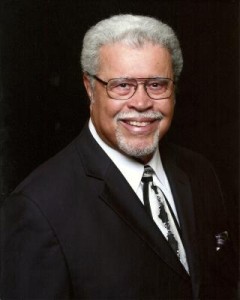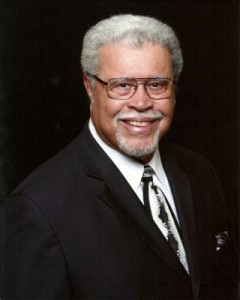PASTOR’S CORNER
By Rev. O.L. Johnson
Religion Columnist
“Churches face no greater challenge than overcoming biblical illiteracy, and the prospects of doing so are formidable because the stark fact is, many Christians don’t know what they believe or why.”
That is a direct quote from pollster George Gallup Jr., who died in 2011 but, nevertheless, it is a 21st century observation and relatively recent.
I can’t comment on the level of accuracy of the quote. I imagine there is a bit of truth to it in most churches today.
In either event, it is a sad commentary on the level of biblical knowledge that exists in the body of Christ. I have found that, in spite of the fact that it is a 21st century quote, what the quote uncovers is far from new.
Biblical illiteracy among the people of God is a 2,000-year-old problem. In the first century A.D. biblical writers addressed the same problem in 1Corinthians 3:2, 1Timothy 1:6, 7, and Hebrews 5:12.
In each of these passages, the people of God are described as being incapable of receiving advanced scriptural teaching because they had not yet learned the fundamentals of God’s word.
So it appears that this is a long-standing problem that, for 2,000 years, God’s people have made very little progress in solving, if we are to take Gallup’s quote seriously and I think we should. Most of us are content with only knowing the requirements of salvation, the fundamentals of the word, so we won’t experience eternity in hell. But there’s more to know.
And we are exhorted in the Bible to do our best to acquire more knowledge of the Holy Scriptures. In Proverbs 4:5, 7, Solomon makes it crystal clear when he tells us to “get wisdom, get understanding.” And we are further exhorted to “forget it not” at the end of Proverbs 4:5. Those passages suggest that reading alone is insufficient.
Dedicated study of scripture is a must if we hope to get wisdom, get understanding and forget it not as the scriptures suggest. If we do it right, the end result will be the ability to apply our acquired knowledge and wisdom to our daily lives. I suppose the “how” question has occurred to you: how do I acquire this level of biblical knowledge? Here are three practical tips.
Don’t be intimidated by scripture. Understanding it can be challenging, but it is not beyond our ability to understand. Develop a “yes I can” attitude. God knows that you can, otherwise he would not have told you to “get understanding” and to “forget it not” in Proverbs 4:5,7. It is out of character for God to tell us to do what he knows we cannot accomplish.
In John’s gospel, Jesus promises that the Holy Spirit “will guide you into all truth,” and that includes the truth of the scriptures. So, learn to allow the spirit to do his job. Ask him questions when they occur to you as you read and study. I’m a witness that he will hear and answer. Through prayer, keep in constant contact with him during your study time.
One final tip regarding study: be a “delver” and not a “skimmer” only. Delve down below the surface of the written page, down to deeper meaning and understanding. Delving involves paying attention to the words, especially the repeated ones, and finding definitions for each.
We can never know meaning of “The Word” without knowing the meaning of the words in The Word.
Rev. O.L. Johnson, a retired LAPD lieutenant, is an associate pastor in his home church, Greater New Zion Baptist, 501 W. 80th St. in South Los Angeles.
Pastor’s Corner is a religious column that looks at the relevancy of scripture in life today. The column appears monthly in The Wave and on its website, www.wavepublication.com.











